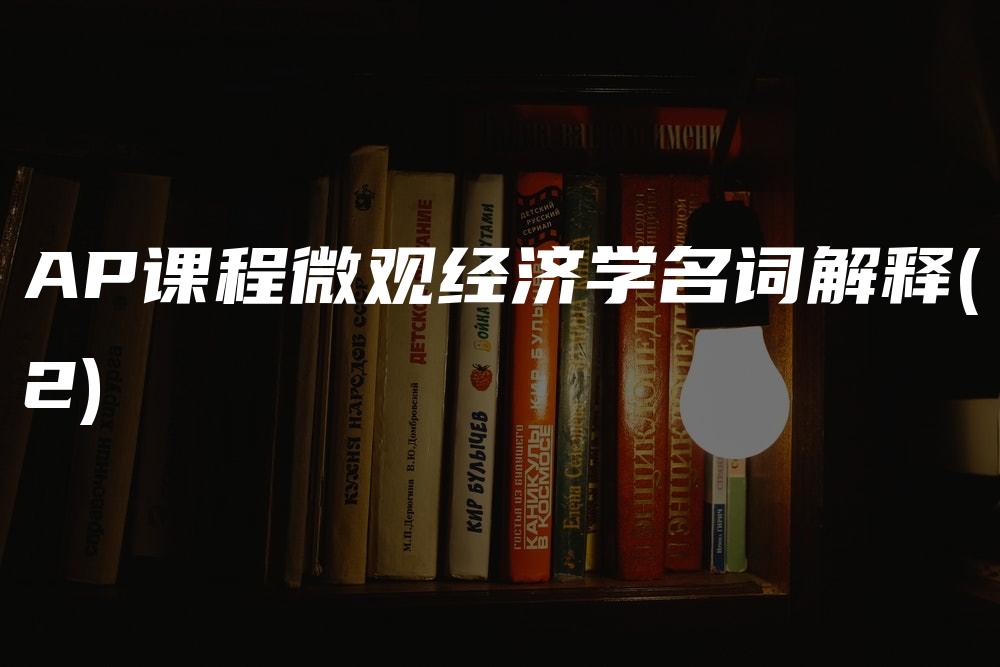AP课程微观经济学名词解释(2)
英思德在线为大家整理了AP课程微观经济学名词解释,供大家参考,希望对大家有所帮助!

Please highlight critical terms;
*=not important for exam but you should know
Chapter Two Demand&Supply
utility- the benefit, happiness, or satisfaction expected from a choice or option.
marginal utility -the benefit (satisfaction) received or anticipated when an additional amount of an activity is undertaken; usually used with marginal opportunity cost. Usually falls as quantity of a particular activity rises, according to the Law of Diminishing Returns.
law of diminishing marginal utility- an example of the law of diminishing returns (see Chapter Two), which says that as larger quantities of a good are consumed, the value of an additional or marginal amount will fall. In other words, marginal utility declines as consumption goes up. This is one basis for the law of demand. surplus- a greater quantity supplied than is demanded, indication of price above equilibrium; also called excess supply.
demand-the relationship between the price and quantity demanded of a good, all else being held constant; demand is based on marginal utility. *quantity demanded-the amount of a good that buyers wish to buy at a particular price. law of demand – the rule that says that the demand relationship is an inverse or negative one (as price rises, quantity demanded falls, all else being held constant) elastic demand- when buyers are very response to changes in price, due to the availability of substitutes. inelastic demand- when buyers do not respond to changes in price, due to lack of substitutes. quantity supplied-the amount of a good that sellers wish to sell at a particular price.
Giffen goods-good for which there is an upward-sloping demand curve(theoretical)
Equilibrium pirce- price at which quantity supplied equals quantity deanded *supply-the relationship between the price and quantity supplied of a good, all else being held constant; the relationship between the amount of a good offered for sale by sellers and the price of the good; supply is based on marginal opportunity cost. law of supply- states that the supply relationship is a direct one (as price of a good gets higher, the amount offered for sale will increase, all else being held constant).
price ceiling- a maximum price set by the government; a price kept below equilibrium, resulting in a shortage.
price controls- prices set by government. price floor-a minimum price set by the government; *market- the total of trades and trade negotiations between buyers and sellers in which they express their desires (reflected in supply and demand). *surplus- a greater quantity supplied than is demanded, indication of price above equilibrium; also called excess supply
*black market-opportunity for mutually beneficial but illegal transactions.
上文整理了AP课程微观经济学名词解释(2)的信息,希望文章里的这些信息考生们能认真的阅读,如果是想再了解其它方面的信息,请点击咨询英思德精英国际网站或复制【IAC0627】添加老师微信咨询!

扫码关注【英思德OSSD | AP | ACT | 国际竞赛】公众号了解更多
最新文章
© 2025. All Rights Reserved. 黑ICP备2022002155号









